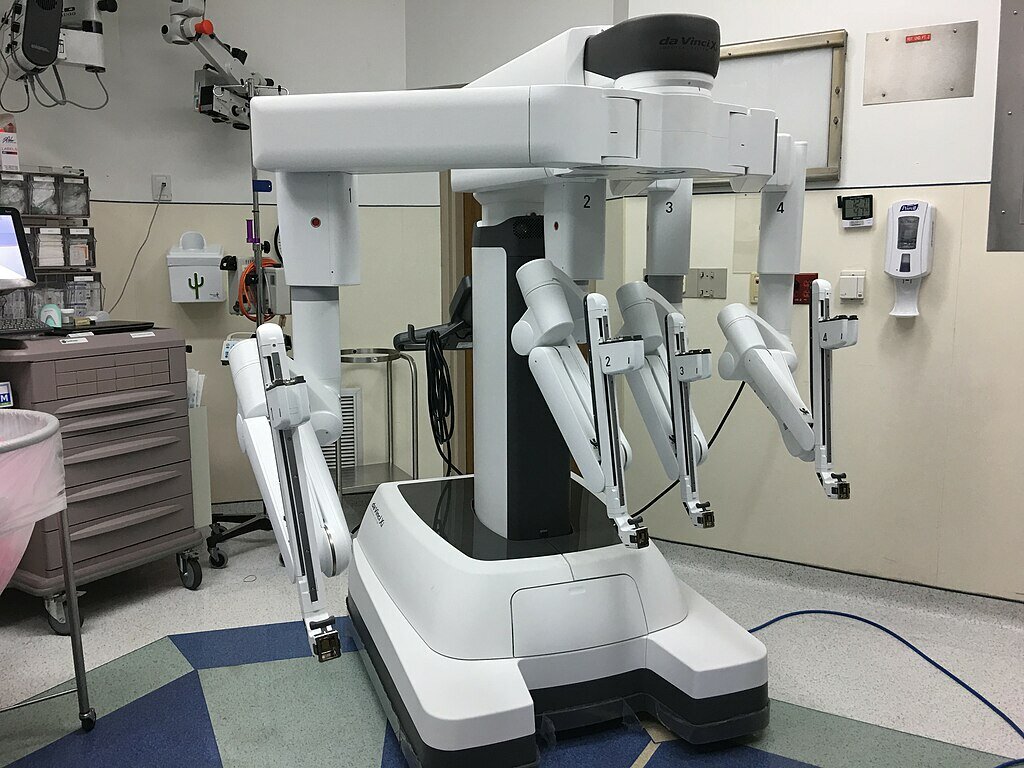Baptist Nassau Offers Robot-Assisted Surgery
Baptist Nassau Hospital in Fernandina Beach has obtained a da Vinci Xi Robotic Surgical System and is now offering a range of procedures, including many gynecological surgeries, with the technology.
The addition of the system means that patients no longer must travel to Jacksonville for many types of robot-assisted procedures, says Dr. Regan Hill, a gynecologic surgeon. The da Vinci Xi system was obtained late last year. Since coming online, Hill has completed 77 gynecologic robot-assisted surgeries.
“We’ve been very busy. My case volumes for gynecology were among the highest in all of Northern Florida,” Dr. Hill says. “With the robot, we can do a l larger volume of procedures, which is needed in this area. We do the majority of gynecological surgeries robotically.”
During robot-assisted operations, the surgeon sits at a console in the operating room, maneuvering instruments. The surgeon is completely in control of the surgery. However, the enhanced imaging technology and precision allows the surgeon to make more precise movements. Like other minimally invasive, or laparoscopic procedures, robot-assisted surgery involves much smaller incisions than are used in traditional, open surgeries. Patients undergoing robot-assisted surgery typically experience less blood loss, pain and scarring. Healing times are faster.
“You get that 3-D capability and high definition. It allows you to do more complicated surgeries with better visualization,” Dr. Hill says. “The outcomes are really good. Because there is less strain and tension on the incisions themselves, patients tend to have less pain than [laparoscopic surgery]. I feel patients bounce back a little bit quicker.”
According to the American College of Obstetricians and Gynecologists, robot-assisted surgery can be performed safely in centers with experienced surgeons. The ACOG position paper, released in 2020, notes that the safety and outcomes of robot-assisted gynecologic surgery is comparable to laparoscopy. The paper noted that compared to laparoscopy, robot-assisted hysterectomy resulted in less blood loss, lower complication rates and shorter hospital stays.
“If you look at the literature, they say the patient outcomes are pretty similar,” Dr. Hill says. “With the less-complicated cases, probably there is not a lot of difference in outcomes. But the robot allows for an increase in visualization. So, if someone has a lot of adhesions or scar tissue, I think the visualization is so much better. I definitely think it’s an improvement in what I’m doing.”
Dr. Hill performs robot-assisted hysterectomies, ovary removal, endometriosis surgery and uterine prolapse procedures. Robot-assisted surgery is especially valuable for complex cases, she said. She is also using the robotic system for uterine prolapse, and she offers incisionless, transvaginal surgery to treat prolapse, bladder rectocele and stress incontinence.
“We have such a huge patient population needing uterine prolapse treatment, and we provide a full complement of services,” she says.
The da Vinci Xi Robotic Surgical System has also been used for urological surgeries, hernia repair, appendectomies and other general surgeries. Dr. Hill said she expects robot-assisted surgery to grow “as we recruit younger grads trained using robotics during residency.”






